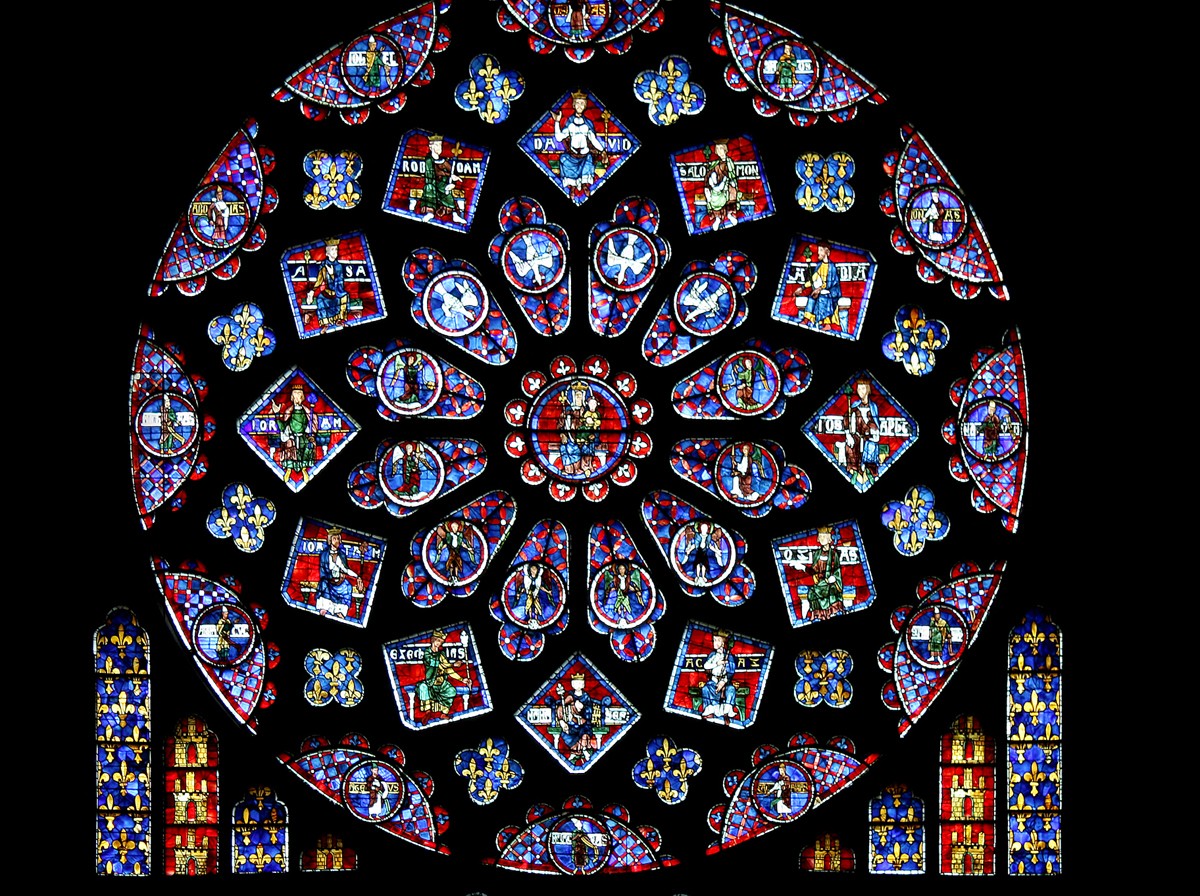Recent Reading: George MacDonald
 How do I characterize George MacDonald’s sermons? I’ve been thinking about this question off and on for several days. I’ve been reading his Unspoken Sermons for a couple of years now, a little at a time, because it’s inconceivable to take them in more than the smallest bites. There is a prophetic depth and unity to George MacDonald’s comprehension of God that demands every bit of intellectual effort I have to offer, every bit of concentration. It’s like he’s tapped into the underground stream of living water running under the whole ground of Scripture. Reading these sermons is a beautifully stern corrective to all kinds of little contaminations and blurry spots in my understanding of God — false steps and inconsistencies that I didn’t know were there.
How do I characterize George MacDonald’s sermons? I’ve been thinking about this question off and on for several days. I’ve been reading his Unspoken Sermons for a couple of years now, a little at a time, because it’s inconceivable to take them in more than the smallest bites. There is a prophetic depth and unity to George MacDonald’s comprehension of God that demands every bit of intellectual effort I have to offer, every bit of concentration. It’s like he’s tapped into the underground stream of living water running under the whole ground of Scripture. Reading these sermons is a beautifully stern corrective to all kinds of little contaminations and blurry spots in my understanding of God — false steps and inconsistencies that I didn’t know were there.
It’s well known that C.S. Lewis was deeply influenced by George MacDonald, writing about the Unspoken Sermons, “My own debt to this book is almost as great as one man can owe to another: and nearly all serious inquirers to whom I have introduced it acknowledge that it has given them great help — sometimes indispensable help toward the very acceptance of the Christian faith.” No wonder it’s two scenes from Narnia that my hand falls upon as I grope for a picture of how I feel when reading these sermons. One is when Jill, Eustace, Puddleglum, and Prince Rilian look down into the kingdom of Bism in The Silver Chair — a chasm deeper than they ever imagined, glowing with heat from its ever-burning fires and its living jewels waiting to be picked and eaten like grapes. The other is in Dawn Treader, when Eustace feels the at once terrible and exquisite pain of his dragon-skin coming off. Every time I read in Unspoken Sermons, I have those feelings of hitherto unimagined sights coming before the eye of my heart, and the birth pains of change tingling in my life.
These last few weeks I’ve read two sermons, “The Consuming Fire,” and “The Higher Faith.” It’s the first one I want to think about here, because it has been the most “consuming” in my thoughts. MacDonald begins with Hebrews 12:29, “Our God is a consuming fire,” and meditates on the significance of fire as an emblem of God’s character throughout the Bible: the burning bush, Mt. Sinai, the burning of purification, even hell and the lake of fire. The primary thing about God’s burning, MacDonald urges, is his love — love which is inexorable. When we cooperate, the burning of God may be painful, but it has a gentleness. God doesn’t give us more revelation than we can bear. But if we set ourselves against it, the burning continues, because God continues to love, and to burn away all that is unlovely. In this way even hell, even the casting of death and hell into the lake of fire, are reconciled with, and are expressions of, God’s love.
Never would this have occurred to me. In our limited understanding it can be difficult to reconcile God’s tenderness and his wrath, but this sermon reveals the unity of God’s nature and the pervasiveness of his love.
This sermon has stayed in my thoughts lately, not just because of its transforming insight, but because of the number of coincidences that have brought it to mind. MacDonald speaks of Moses’ partial revelation of God on Sinai, when he asks to be blotted out of God’s book because of the sins of his people. Then God reveals himself again to Moses, partially — only his back, because no one can look on his face and live. After reading MacDonald’s discussion of it, this same passage came up in the girls’ and my Bible reading this week. We talked about why “no one can look upon God’s face and live.” A few days later, Younger Daughter came out of her room, where she was listening to the audiobook of The Lion, the Witch, and the Wardrobe, and told me that she had been reminded of the story again because when the Pevensie children meet Aslan for the first time, they find his face too beautiful to look upon.
I love it when this happens — when God develops a theme steadily over a period of time in different ways.
By far the most important revelation this sermon gives me is of God’s love. There are several passages I underlined, and I’d like to quote them all, but they are all better in context. So in the end I regretfully resist my impulse to insert long excerpts from “The Consuming Fire” here, and instead I recommend it in its entirety — along with the rest of the sermons in the book, to be taken in small doses as our ears are ready to hear.



4 Comments
Alice@Supratentorial
Great review, Janet. I’ve never read MacDonald but have had him on my “should read one day list”. Even more so now.
hopeinbrazil
Beautifully written review. I have dipped into McDonald’s writings on and off for years, but have never read this book. I’ll be sure to get it now.
Amy @ Hope Is the Word
Well, I shall have to add yet one more of his titles to my TBR list. I’ve only read some of his fiction. I can only imagine what his sermons must be like.
Barbara H.
I read a bit of something by MacDonald years ago and realized it was going to need more concentration I had at the time, and then I never got back to him. I need to try him again. This sermon sounds so interesting — we usually think of God’s being a consuming fire as a necessary but negative thing, but it is the positive side of His love as well.